7 Reasons Why the CDC Says Everyone Needs the New COVID Booster Now
Stay safe, as COVID infections are on the rise.
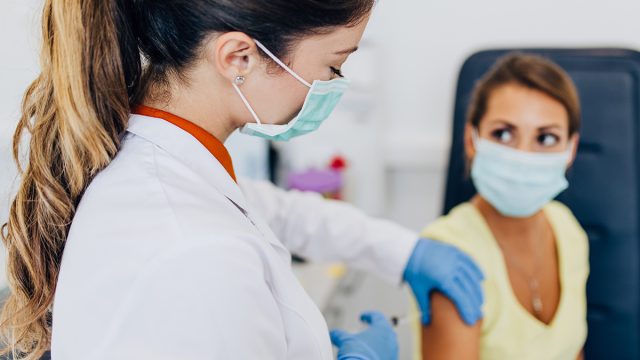
This month, the FDA approved updated COVID-19 vaccines, and the CDC recommended that everyone older than six months get one this fall. The new shots are available at healthcare providers and pharmacies nationwide. You should make an appointment even if you've been fully vaccinated or had a COVID infection in the past, experts say. Wondering why? Here are seven reasons to roll up your sleeve.

Getting the COVID vaccine or contracting the virus gives you a degree of immunity. However, that protection is only temporary. "Immunity wanes after anywhere from three to six months," Dr. Donald Alcendor, a professor of microbiology, immunology and physiology at Vanderbilt University, told ABC News this week. "That will be different for different people. Immunity waning in a 5-year-old versus a 75-year-old will be different…the immune system is weakened with age."

All age groups are recommended to get the vaccine because "even children and adults with no underlying conditions can still experience severe illness due to COVID," said Dr. Sandra Fryhofer, an adjunct associate professor of medicine at the Emory University School of Medicine.

Experts say it's also essential for younger people to get the vaccine because they can infect older and more vulnerable people. The call for everyone to be vaccinated "was the right thing to do," said Alcnedor. "If you start to restrict recommendations to certain age groups or vulnerabilities and leave younger people out of it, you forget that young people can spread COVID and can get older people sick."

Conversely, infants are also vulnerable to severe illness and death from COVID. The shot is especially important for children under one year, said Dr. Tina Tan, a pediatrician with the Ann & Robert H. Lurie Children's Hospital of Chicago and vice president of the Infectious Disease Society of America's board of directors.
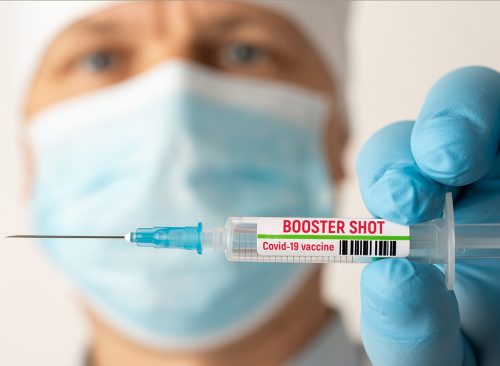
Last year's COVID boosters were targeted at the first strain of COVID and its follow-up, Omicron. This year's updated vaccines are tailored to XBB.1.5, a later strain dominant in the U.S. until early this year. The good news: Data from clinical trials shows that the newest boosters are protective against the new, highly mutated strain BA.2.86 (a.k.a. Pirola).

The updated COVID vaccines are "the best protection against COVID-19 related hospitalization and death," the CDC said in a Sept. 12 news release. "Last season, those who received a 2022-2023 COVID-19 vaccine saw greater protection against illness and hospitalization than those who did not receive a 2022-2023 vaccine."
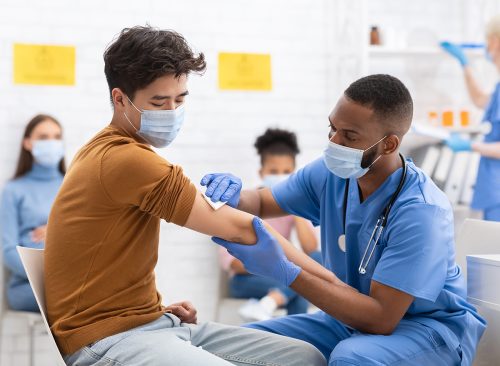
"Vaccination also reduces your chance of suffering the effects of Long COVID, which can develop during or following acute infection and last for an extended duration," the CDC said.

"Because the effectiveness of the flu and COVID-19 vaccines can wear off after six months, it makes the most sense to get these vaccines in late October or November before the anticipated peak of illness during wintertime," Dr. Scott A. Rivkees of the Brown School of Public Health wrote this week in Time. "Flu and COVID-19 vaccines can be given simultaneously." However, experts told Fortune that people in certain groups should get the updated vaccine ASAP: Anyone age 65 or older, people with pre-existing health conditions such as diabetes and obesity, and anyone pregnant.
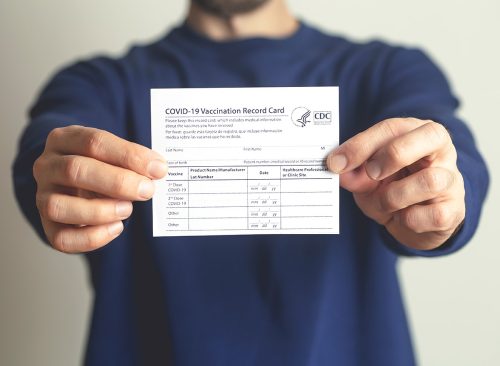
Experts advise getting the updated COVID vaccine at least two months after your last COVID booster or COVID infection.
RELATED: Surprising Signs You've Already Had COVID
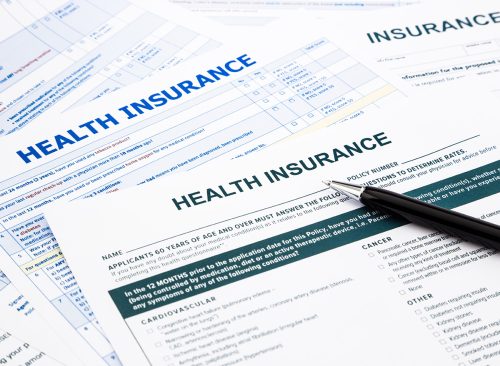
"Most Americans can still get a COVID-19 vaccine for free," the CDC says. "For people with health insurance, most plans will cover COVID-19 vaccine at no cost to you. People who don't have health insurance or with health plans that do not cover the cost can get a free vaccine from their local health centers; state, local, tribal, or territorial health department; and pharmacies participating in the CDC's Bridge Access Program. Children eligible for the Vaccines for Children program also may receive the vaccine from a provider enrolled in that program."














